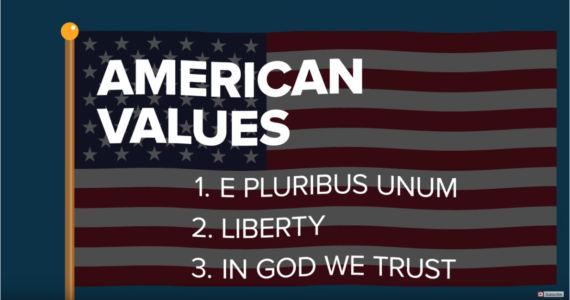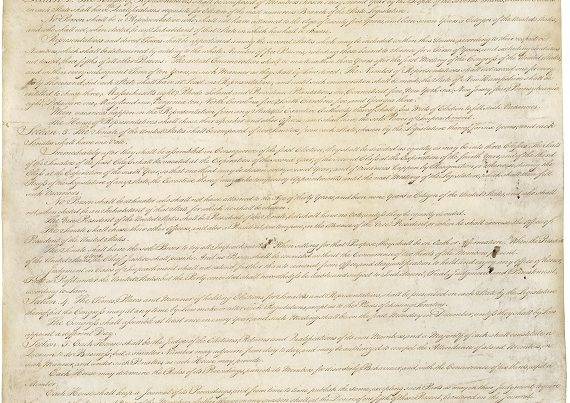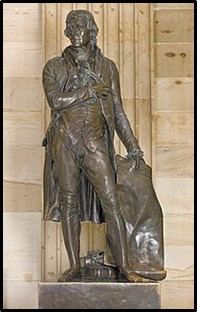Conservative talk radio host Dennis Prager has become a YouTube success with his five-minute videos on politics, history, religion and culture. They’ve been viewed 2.5 billion times and he gets thousands of emails daily. About eighty percent are hosted by prominent experts that include prime ministers, Nobel Prize winners, professors and other credentialed authorities. Prager is an especially effective advocate for free speech, which has even required that he battle YouTube.
Dennis is justifiably proud of Prager U’s popularity and the quality of hosts it normally attracts. On a recent YouTube “Prager Fireside Chat” he complained that when critics denounce the videos as inaccurate, “they never give an example.” So, I’ll provide some. The recent Prager U video with Dr. Allen Guelzo on Reconstruction is not only inaccurate but also contains outright falsehoods. Guelzo claims that although white Southerners lost the War, they “won” Reconstruction by perpetuating a racist society.
First Falsehood. President Andrew Johnson’s overruled Reconstruction plan would have permitted the former Confederate states to rejoin the Union by merely ratifying the Thirteenth Amendment abolishing slavery.
In reality, the plan also required them to repudiate Confederate debts, including personal savings bonds. Thus, nearly all that was left in the war-ravaged region was poverty. Since Johnson considered Abraham Lincoln the greatest American who ever lived, he felt duty-bound to implement the martyred President’s plan as nearly as possible. Arguably he understood it as well as anyone since he was Lincoln’s Vice President and earlier military governor of Tennessee, which was re-admitted to the Union before Lincoln died. Additionally, Johnson’s plan was more stringent than Lincoln’s. Former Confederates with $20,000 in property or previous political influence, for example, had to apply directly to him for the pardons that would enable some to vote and hold office.
Second Falsehood. The South returned to “economic backwardness ” after the end of Republican Reconstruction in 1877.
In truth, the region’s “economic backwardness” began with the wreckage of the Civil War, which ended in 1865 and started in 1861, some twelve to sixteen years earlier. After surrendering, Confederate soldiers typically returned to families that were barely surviving under conditions of near starvation. Historian David L. Cohn writes: “When there was a shortage of work stock, the few surviving animals were passed from neighbor to neighbor. [When] there was no work stock [the men] hitched themselves to the plow. By ingenuity, backbreaking toil, and cruel self-denial thousands of Southern farmers survived reconstruction . . . They received no aid from any source, nor any sympathy outside the region.”

Question for Prager and Guelzo: Please show me the difference between the Winners and Losers of Reconstruction in this photo taken seventy five years after the Civil War
Third Falsehood. When white Southerners regained control of their state governments between 1872 and 1877 they disfranchised black voters and imposed a Jim Crow culture.
In reality, those developments came 20-25 years later when the rise of the Populist Party threatened to return the Southern states to Republican Carpetbag Rule by weakening the Democratic Party. Southern aversion to the threat can only be understood by those informed of the corruption and abuses of the Carpetbag regimes, which Guelzo fails to mention. An objective teacher might have quoted the following experts:
Booker T. Washington: “In many cases it seemed to me that the ignorance of my race was being used as a tool with which to help [Republican] white men into office, and that there was an element in the North which wanted to punish the Southern white men by forcing the Negro into positions over the head of the Southern whites.”
Daniel Chamberlain, who was the last Carpetbag governor of South Carolina where over half the population was black, wrote decades later in 1900: “In the mass of colored voters in South Carolina in 1867, what forces could have existed that made for good government? Ought it not to have been clear . . . that good government . . . could not be had from such an aggregation of ignorance, inexperience and incapacity?” He also admitted that the Carpetbag regimes were chiefly intended to keep the Republicans in control of the federal government. The welfare of the ex-slaves was, at best, a distant secondary goal: “Underneath all the avowed [Republican] motives . . . lay a deeper cause . . . the determination to secure party ascendency and control at the South and in the nation through the negro vote. If this is hard saying, let anyone now ask himself . . . if it is possibly credible that the [1867] reconstruction acts would have passed if the negro vote had been believed to be Democratic.”
Despite often harshly criticizing the South, Wilbur Cash’s 1929 The Mind of the South observes: “Had there been no Reconstruction the result would have been unhappy. . . . But mark how the Yankee was heaping up the odds. In his manipulation of the unfortunate black man he was . . . generating a terrible new hatred for him. Worse, he was inevitably extending this hate to the quarter where there had been no hate before: to the master class.”
Former Confederate Vice President Alexander Stephens’ remarks to the all-white Georgia legislature in February 1866 suggest that President Johnson’s Reconstruction Plan might have had better results for ex-slaves than did Republican Reconstruction:
Wise and humane provisions should be made for [freedmen] . . . so that they may stand equal before the law, in the possession and enjoyment of all rights of person, liberty and property. Many considerations claim this at your hands. Among these may be stated their fidelity in times past. They cultivated your fields, ministered to your personal wants and comforts, nursed and reared your children; and even in the hour of danger and peril they were, in the main, true to you and yours. To them we owe a debt of gratitude, as well as acts of kindness.
I speak of them as we know them to be, having no longer the protection of a master or legal guardian; they now need all the protection which the shield of law can give. But above all, this protection should be secured because it is right and just . . .
Far more powerful criticism may be applied to Guelzo’s Prager U video on the basis of his omissions. This article merely focuses on his outright falsehoods because Dennis Prager claims few critics provide examples of errors. Those wanting to learn more about Reconstruction free of political correctness may consider two of my books:
U. S. Grant’s Failed Presidency by Philip Leigh
Southern Reconstruction by Philip Leigh






